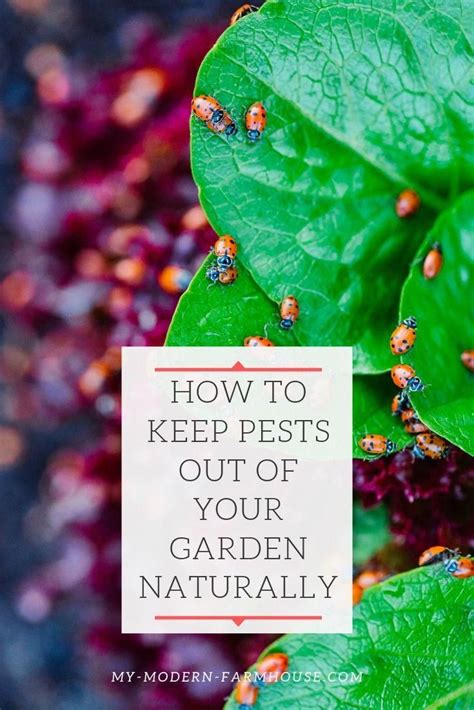Effective Strategies to Keep Your Balcony Garden Pest-Free for Healthy Growth
Balcony gardening offers a slice of nature in urban environments, but it comes with the challenge of pest control. While enjoying the beauty of a personal garden, many gardeners face issues like pests that can harm plant health and diminish the joy of urban gardening. Maintaining a pest-free balcony garden requires a combination of organic solutions, preventive measures, and proper plant protection techniques.
Key Concepts in Balcony Gardening and Pest Control
To achieve gardening success, understanding the interplay of pests and plants is crucial. Balcony gardens, exposed to urban elements, can attract a variety of pests, but with careful plant protection and eco-friendly solutions, you can create a thriving ecosystem.
- Pest Control: Managing insects or animals that damage plants.
- Organic Solutions: Natural methods of pest control that avoid synthetic chemicals.
- Plant Protection: Strategies to safeguard plants from pests and diseases.
- Preventive Measures: Actions taken to avoid pest infestations before they start.
Historical Context of Pest Control in Gardening
The history of pest control has evolved from chemical-heavy solutions to more eco-friendly approaches. Balcony gardening, with limited space and proximity to living areas, popularized organic methods. Initially, pest control in urban gardening was dominated by chemical pesticides, but as awareness about environmental health and personal safety grew, organic solutions became preferred.
Current State Analysis of Pest Problems in Urban Balcony Gardens
Urban gardening has grown significantly in popularity, especially in small spaces like balconies. With this rise comes an increased likelihood of pest infestations, driven by limited biodiversity and the proximity of plants. Pests such as aphids, spider mites, and whiteflies are common in balcony gardens due to the urban setting.
| Pest Type | Common Symptoms | Organic Solutions | Preventive Measures |
|---|---|---|---|
| Aphids | Curled leaves, sticky residue | Neem oil, insecticidal soap | Regular plant inspection, companion planting |
| Spider Mites | Yellowing leaves, webbing on plants | Water sprays, ladybugs | Humidity control, avoid overcrowding |
| Whiteflies | White insects flying when disturbed, yellow leaves | Sticky traps, organic sprays | Quarantine new plants, prune infected areas |
Practical Applications: How to Keep Your Balcony Garden Pest-Free
Combining preventive measures and targeted interventions can lead to effective pest management. Key practices include using organic pest control methods, monitoring plant health regularly, and implementing eco-friendly tips like attracting beneficial insects.
1. Use Organic Solutions
Eco-friendly solutions like neem oil and insecticidal soaps are gentle on plants while effectively managing pests. Companion planting, which involves growing pest-repelling plants like marigolds, can naturally protect your garden.
2. Regular Monitoring and Inspection
Closely monitoring plants helps you catch early signs of pest activity. Regularly check for discolored leaves, spots, and insects. If caught early, pests are easier to manage without using harsh chemicals.
3. Encourage Beneficial Insects
Ladybugs, lacewings, and other beneficial insects naturally prey on harmful pests. Planting flowers like dill and yarrow can attract these helpers to your garden, ensuring a balanced ecosystem.
Case Studies: Success Stories in Urban Gardening Pest Control
Many urban gardeners have found success with eco-friendly pest management. For example, a balcony garden in New York City, plagued by aphids, saw improvement after using a neem oil spray combined with introducing ladybugs. Another case in Berlin involved controlling spider mites by increasing humidity and spacing plants for better airflow.
| Location | Pest Problem | Solution | Outcome |
|---|---|---|---|
| New York City | Aphids | Neem oil and ladybugs | Complete elimination of aphids in two weeks |
| Berlin | Spider Mites | Humidity control and plant spacing | Spider mite population reduced significantly |
Stakeholder Analysis: Who Benefits from Eco-Friendly Pest Control?
Balcony gardeners, neighbors, and the environment all benefit from organic pest control methods. Gardeners enjoy healthier plants without exposing themselves or their neighbors to harmful chemicals, while the environment sees reduced pollution and better biodiversity. Additionally, promoting green urban spaces can enhance the quality of life in dense cities.
Implementation Guidelines for Balcony Garden Pest Control
To implement effective pest control in your balcony garden, follow these guidelines:
- Start with healthy plants: Inspect new plants for pests before introducing them to your garden.
- Use companion planting: Strategically place pest-repelling plants like marigolds or lavender.
- Water correctly: Avoid overwatering as it can lead to root rot and attract pests.
- Maintain plant diversity: A diverse garden is less likely to be overrun by pests than one with only a few plant types.
- Regular inspections: Check for signs of pests and deal with them early.
Ethical Considerations in Pest Control for Balcony Gardens
While pest control is essential, it’s crucial to consider the environmental impact of your methods. Opting for organic solutions minimizes harm to the ecosystem and promotes biodiversity. Chemical pesticides may offer quick results but can harm beneficial insects, local wildlife, and even the health of urban residents.
Limitations and Future Research in Balcony Pest Control
While current pest control methods are effective, challenges remain. Future research could focus on refining organic pest control formulas to be more targeted and long-lasting. Additionally, understanding the long-term effects of introducing beneficial insects in urban environments could provide deeper insights into maintaining balanced garden ecosystems.
Expert Commentary: Insights from Urban Gardening Specialists
Experts in urban gardening emphasize the importance of early intervention and consistent care in pest control. “Regular monitoring is key,” says one gardening expert, “because catching pest issues early can save your plants and reduce the need for heavy interventions.” Another specialist points out, “Balcony gardeners often overlook beneficial insects, which can be a game-changer in maintaining a healthy, thriving garden.”


